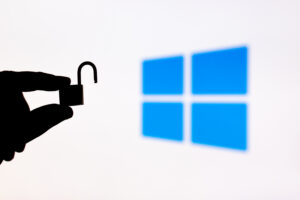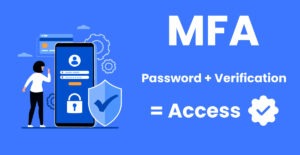
When setting up a new Windows device, Microsoft offers two main login options: creating a Microsoft account or using a local account. While a Microsoft account provides convenient integration with cloud-based services like OneDrive and Outlook, opting for a local account can offer significant security benefits. In this article, we’ll examine Local vs Microsoft account security and discuss why using a local account might be the safer choice. We’ll also cover some of the potential risks that come with using a Microsoft account and outline how you can still access Microsoft services even if you choose a local account.
Local vs Microsoft Account Security: Key Risks of a Microsoft Account
A Microsoft account is designed to sync your settings, apps, and files across multiple devices. This does make it easy to access services like Office, OneDrive, and Microsoft Store apps. However, because it’s an online account, there are unique security risks:
- Increased Risk of Account Compromise
When comparing Local vs Microsoft account security, it’s crucial to consider what happens if a Microsoft account is compromised. Since your Microsoft account credentials control not only online access but also your Windows login, a compromise could leave you locked out of your device. This vulnerability adds a risk factor that simply doesn’t exist with a local account. - Online Vulnerabilities and Data Breach Risks
Microsoft accounts are stored on Microsoft’s servers, making them more exposed to potential online threats. If an attacker gains access to your Microsoft account, they gain access to all services connected to that account, including OneDrive and Outlook. This risk is one of the main security differences between local and Microsoft accounts. - Two-Factor Authentication Doesn’t Eliminate All Risks
Microsoft accounts offer two-factor authentication (2FA) for added security, but this isn’t foolproof. Skilled attackers can bypass 2FA through phishing attacks or by using duplicate login screens to capture your login credentials. Additionally, if your phone (used for 2FA) is lost or broken, you may struggle to regain access to your account, complicating your access to your device. - Privacy Concerns and Data Collection
Another important factor in the Local vs Microsoft account security debate is privacy. With a Microsoft account, user data, such as browsing history, app usage, and personal information, is often synced and stored on Microsoft’s servers. A local account, by contrast, operates independently, allowing you to keep personal data offline and avoid Microsoft’s tracking systems.
Why a Local Account Can Be Safer
While a Microsoft account integrates your Windows experience with the broader Microsoft ecosystem, a local account focuses on security, privacy, and control. Here’s why you might prefer using a local account:
- Reduced Exposure to Online Threats
A local account doesn’t connect to Microsoft’s servers or the internet for authentication. So it’s less vulnerable to hacking, phishing, and data breaches. Your login credentials are managed locally on your device. This gives you a level of protection that isn’t reliant on external networks. - More Control Over Device Access
When it comes to Local vs Microsoft account security, having a local account means you’re in direct control of your device’s access. You won’t need to worry about issues like Microsoft account service outages or account suspensions. With a local account, there’s no risk of losing access due to external issues, making it an ideal option for security-conscious users. - Enhanced Privacy
Local accounts don’t sync data like search history, app usage, or personal details with Microsoft, giving you greater privacy. This keeps personal information on your device instead of on Microsoft’s servers, making it a good choice for those who value data privacy. - Simple Setup and Login
Local accounts provide a streamlined setup and login experience. Since a local account doesn’t require internet-based verification codes, logging in is fast and doesn’t rely on any external factors. This reduces potential points of failure and makes accessing your device quick and easy.
Managing Microsoft Services with a Local Account
Even if you opt for the added security of a local account, you can still access essential Microsoft services like OneDrive, Office, and Outlook by signing into these applications separately. Here’s how you can link Microsoft services without converting your primary Windows login to a Microsoft account:
- Using OneDrive with a Local Account
Open OneDrive on your Windows device and sign in with your Microsoft credentials. This allows you to sync files and back up data to the cloud without linking OneDrive to your Windows login. In the Local vs Microsoft account security conversation, this approach allows you to get the best of both worlds. - Individual Sign-In for Office Applications
You can sign in to Microsoft Office applications, like Word and Excel, independently of your Windows login. This lets you use Microsoft 365 features without compromising the security of your Windows login by connecting it to an online account. - Microsoft Store Access
Some Microsoft Store apps require a Microsoft account, but you can still access the Store separately without linking it to your Windows login. This way, you can enjoy the apps you need without exposing your Windows account to unnecessary risks.
Benefits of a Microsoft Account (When Used Carefully)
While this post emphasizes the security benefits of a local account, a Microsoft account does offer some advantages, especially if you need cloud-based syncing and multi-device integration:
- Automatic Backup and File Syncing
A Microsoft account allows automatic syncing of settings and files across multiple devices, which can be useful if you switch between Windows devices frequently. - Device Tracking and Remote Management
Features like Find My Device and remote wipe are unique to Microsoft accounts and can be valuable if your device is lost or stolen. - Integration Across Microsoft’s Ecosystem
If you’re deeply invested in Microsoft’s ecosystem, a Microsoft account can provide seamless integration across platforms, enhancing productivity and convenience.
Conclusion: Local vs Microsoft Account Security—Which Is Right for You?
When considering Local vs Microsoft account security, it’s essential to weigh your priorities. For users focused on privacy and security, a local account is likely the best option, offering isolation from online threats, greater privacy, and full control over device access. On the other hand, a Microsoft account provides convenience through cloud syncing and integration but comes with the risk of exposure to online threats and data tracking.
Ultimately, many users find a hybrid approach works best: using a local account for device login while accessing Microsoft services individually as needed. This setup offers the security and privacy of a local account, with the convenience of cloud-based tools only when necessary. No matter which option you choose, understanding the differences between a local and Microsoft account helps you make an informed decision that meets your security and privacy needs.

Are you looking for help with your business network. Contact Baychester Associates today for a free site survey.
TECHNOLOGY MADE SIMPLE…


